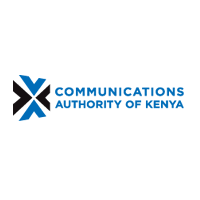Nairobi's Fiber Feud: A Clash of Interests in the Digital Age
February 28, 2025, 3:40 pm
In the heart of Nairobi, a storm brews. The city is embroiled in a fierce battle over fiber optic cables. This conflict pits the Nairobi City County against Kenya Power (KPLC). The stakes are high, and the implications stretch far beyond tangled wires.
Nairobi City County has launched a significant crackdown on unauthorized fiber optic cables. These cables, strung along power poles, are now under scrutiny. The operation began on Argwings Kodhek Road, a vital artery in the city. Officials are determined to disconnect internet cables installed without proper approval. This is not just a matter of compliance; it’s about revenue and accountability.
The Nairobi County Revenue Chief Officer, Tiras Njoroge, has taken a firm stance. He claims that Internet Service Providers (ISPs) have ignored regulations. They have failed to pay for wayleaves—essentially, the fees required to use public land for their installations. This oversight has led to a significant financial gap for the county. Njoroge has made it clear: these fiber lines are illegal. The message is loud and clear—comply or face the consequences.
The county's financial woes are compounded by a staggering debt owed by KPLC. The power utility owes Nairobi City County a whopping KSh 4.8 billion. This debt is not just a number; it represents lost opportunities for the county to provide essential services. Njoroge has expressed frustration over KPLC's refusal to settle its dues. The county needs this revenue to operate effectively. Without it, the city’s services suffer.
KPLC finds itself in a precarious position. Accusations are flying. Nairobi County officials claim that KPLC is enabling non-compliant companies to mount fiber optic cables on its power lines. This arrangement allows ISPs to operate without the necessary permits. It’s a tangled web of interests, where profit margins overshadow regulatory compliance.
The conflict has deep roots. It dates back to 2007 when KPLC challenged the county's authority to impose wayleave fees. A High Court ruling dismissed KPLC's petition, but the company sought relief from the Court of Appeal. However, no formal appeal has been filed, leaving the situation in limbo. This standoff has created a vacuum, allowing the dispute to fester.
As the crackdown intensifies, tensions rise. Nairobi County officials have taken drastic measures. They stormed Stima Plaza, KPLC's headquarters, disconnecting its sewerage system. Waste was dumped on the premises, a symbolic gesture of defiance. The message is clear: until a payment agreement is reached, the county will not back down.
The back-and-forth between the two entities raises questions about accountability. KPLC is profiting from public infrastructure while neglecting its financial obligations. This is a classic case of the public versus private interests. The county argues that KPLC is making money off the very poles that should be contributing to public revenue. It’s a bitter pill to swallow for city officials.
The implications of this feud extend beyond financial disputes. It affects the everyday lives of Nairobi residents. Internet connectivity is crucial in today’s digital age. Disruptions in service can hinder businesses and frustrate consumers. The stakes are high, and the clock is ticking.
As the conflict escalates, both sides remain entrenched in their positions. KPLC has publicly announced its profits, further aggravating the situation. Nairobi County officials argue that this is a slap in the face. They are left wondering who will pay for their services if KPLC continues to evade its responsibilities.
The city’s infrastructure is at a crossroads. The fiber optic cables represent the future of connectivity. Yet, they are caught in a battle of wills. The need for compliance and revenue generation clashes with the desire for profit and expansion. It’s a classic standoff, where both sides are unwilling to budge.
In the end, the resolution of this conflict will require more than just legal maneuvering. It will demand dialogue and compromise. Both parties must recognize the importance of collaboration. The future of Nairobi’s digital landscape depends on it.
As the dust settles, one thing is clear: the battle over fiber optic cables is more than just a local issue. It reflects broader themes of governance, accountability, and the challenges of modern infrastructure. Nairobi stands at a pivotal moment, where the decisions made today will shape its digital future. The city must navigate these turbulent waters carefully, lest it be left in the dark.
Nairobi City County has launched a significant crackdown on unauthorized fiber optic cables. These cables, strung along power poles, are now under scrutiny. The operation began on Argwings Kodhek Road, a vital artery in the city. Officials are determined to disconnect internet cables installed without proper approval. This is not just a matter of compliance; it’s about revenue and accountability.
The Nairobi County Revenue Chief Officer, Tiras Njoroge, has taken a firm stance. He claims that Internet Service Providers (ISPs) have ignored regulations. They have failed to pay for wayleaves—essentially, the fees required to use public land for their installations. This oversight has led to a significant financial gap for the county. Njoroge has made it clear: these fiber lines are illegal. The message is loud and clear—comply or face the consequences.
The county's financial woes are compounded by a staggering debt owed by KPLC. The power utility owes Nairobi City County a whopping KSh 4.8 billion. This debt is not just a number; it represents lost opportunities for the county to provide essential services. Njoroge has expressed frustration over KPLC's refusal to settle its dues. The county needs this revenue to operate effectively. Without it, the city’s services suffer.
KPLC finds itself in a precarious position. Accusations are flying. Nairobi County officials claim that KPLC is enabling non-compliant companies to mount fiber optic cables on its power lines. This arrangement allows ISPs to operate without the necessary permits. It’s a tangled web of interests, where profit margins overshadow regulatory compliance.
The conflict has deep roots. It dates back to 2007 when KPLC challenged the county's authority to impose wayleave fees. A High Court ruling dismissed KPLC's petition, but the company sought relief from the Court of Appeal. However, no formal appeal has been filed, leaving the situation in limbo. This standoff has created a vacuum, allowing the dispute to fester.
As the crackdown intensifies, tensions rise. Nairobi County officials have taken drastic measures. They stormed Stima Plaza, KPLC's headquarters, disconnecting its sewerage system. Waste was dumped on the premises, a symbolic gesture of defiance. The message is clear: until a payment agreement is reached, the county will not back down.
The back-and-forth between the two entities raises questions about accountability. KPLC is profiting from public infrastructure while neglecting its financial obligations. This is a classic case of the public versus private interests. The county argues that KPLC is making money off the very poles that should be contributing to public revenue. It’s a bitter pill to swallow for city officials.
The implications of this feud extend beyond financial disputes. It affects the everyday lives of Nairobi residents. Internet connectivity is crucial in today’s digital age. Disruptions in service can hinder businesses and frustrate consumers. The stakes are high, and the clock is ticking.
As the conflict escalates, both sides remain entrenched in their positions. KPLC has publicly announced its profits, further aggravating the situation. Nairobi County officials argue that this is a slap in the face. They are left wondering who will pay for their services if KPLC continues to evade its responsibilities.
The city’s infrastructure is at a crossroads. The fiber optic cables represent the future of connectivity. Yet, they are caught in a battle of wills. The need for compliance and revenue generation clashes with the desire for profit and expansion. It’s a classic standoff, where both sides are unwilling to budge.
In the end, the resolution of this conflict will require more than just legal maneuvering. It will demand dialogue and compromise. Both parties must recognize the importance of collaboration. The future of Nairobi’s digital landscape depends on it.
As the dust settles, one thing is clear: the battle over fiber optic cables is more than just a local issue. It reflects broader themes of governance, accountability, and the challenges of modern infrastructure. Nairobi stands at a pivotal moment, where the decisions made today will shape its digital future. The city must navigate these turbulent waters carefully, lest it be left in the dark.

